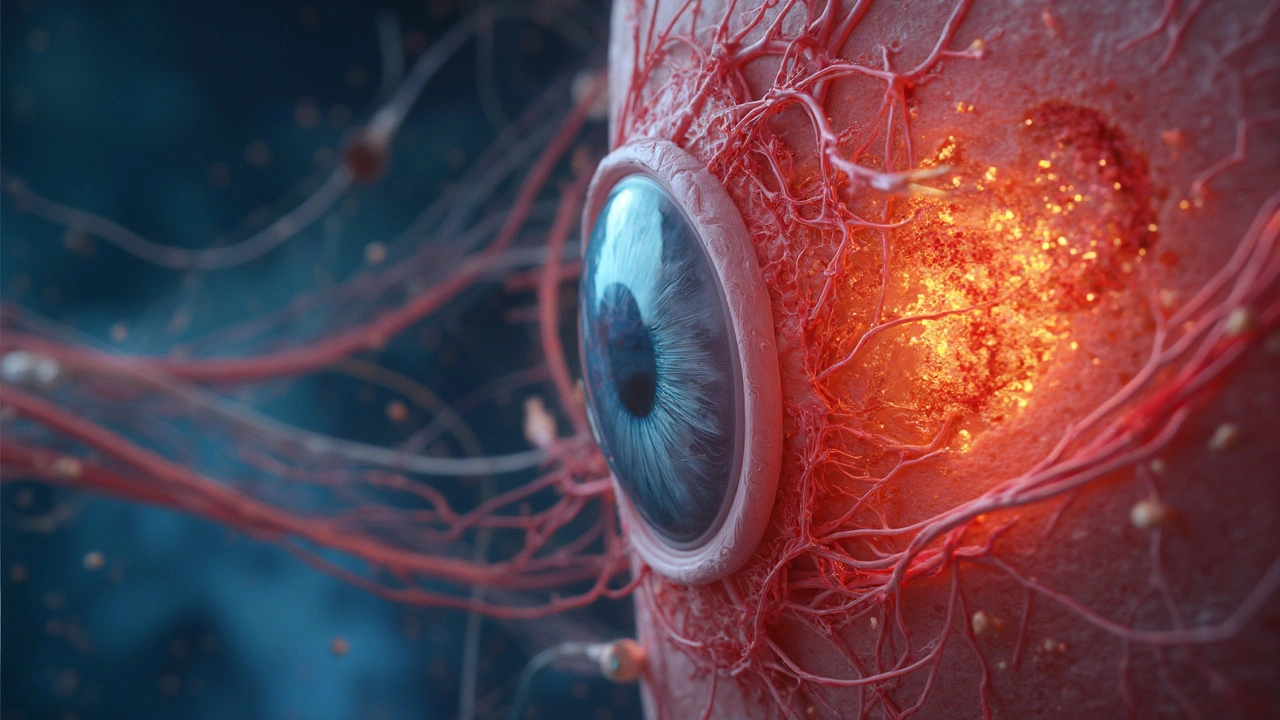Eye health: simple, practical steps to protect your vision
Tired, gritty, or blurry eyes? That’s a common issue. Dry eyes and contact lens discomfort are among the top reasons people search for eye health tips. Causes range from too much screen time and aging to certain medications like isotretinoin or antihistamines. Knowing what to do right now can save you irritation or a trip to the clinic later.
Quick, useful tips you can try today
Start with small changes that make a big difference:
- Blink often: When staring at screens, remind yourself to blink every 20 minutes. Blinking spreads natural tears and reduces dryness.
- Use artificial tears: Over-the-counter preservative-free drops can ease irritation. Use as directed and pick a brand for daily use if you’re prone to dry eyes.
- Humidify your space: Dry indoor air worsens symptoms. A small humidifier near your desk or bed can help overnight comfort.
- Contact lens hygiene: Wash hands before touching lenses, use fresh solution, replace the lens case every 3 months, and don’t sleep in lenses unless your eye doctor says it’s OK.
- Screen breaks and posture: Reduce glare, set screens slightly below eye level, and follow the 20-20-20 rule: every 20 minutes look 20 feet away for 20 seconds.
- Sunglasses and UV protection: Wear wraparound sunglasses outdoors to protect from UV and wind that dry the eyes.
If you have diabetes or are aging, schedule regular eye exams. Diabetes can damage the retina before you notice symptoms; an annual retinal check is a low-effort step that catches problems early.
Medications and contact lenses — what to watch for
Certain drugs can cause dry eyes or make contact lenses uncomfortable. Isotretinoin, commonly used for acne, is known to reduce tear production and increase lens irritation. If you start a new prescription and notice dryness or redness, tell your prescriber and your eye doctor. They may suggest switching to glasses temporarily, adjusting drops, or changing the medication.
Other meds that can affect eyes include some antihistamines, diuretics, and certain antidepressants. Don’t stop a prescribed medication on your own — instead ask your doctor about alternatives or ways to protect your eyes while staying on necessary treatment.
Want more details? Check these related reads on our site for deeper info and practical guidance:
- Isotretinoin and Contact Lenses: Why isotretinoin causes dry eyes and how to keep lenses comfortable during acne treatment.
- Glucophage (Metformin) and Diabetes: How managing blood sugar ties into eye health and when to get retinal checks.
- Aging, Chronic Disease, and Health: Simple lifestyle moves that support vision as you age.
- Lingonberry Supplements: Natural antioxidants and how diet can support eye function.
Still unsure about a symptom or a drug side effect? Use our contact page to ask a question or schedule an eye check with your doctor. Small steps now keep your eyes comfortable and your vision clearer for longer.

